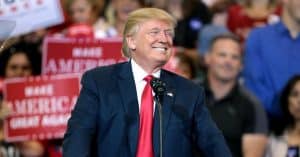Judge Denies Trump's Sentencing Delay Request
In a significant legal ruling, a New York judge refused President-elect Donald Trump's request to postpone his sentencing for falsifying business records, scheduled just days before his inauguration.
The decision means Trump will face sentencing on Jan. 10, 2025, avoiding complexities related to his upcoming presidency.
Judge Juan Merchan delivered this decision on a Monday, rejecting arguments put forth by Trump's legal team who sought to delay the proceeding or pause deadlines to resolve appeals surrounding presidential immunity. The sentencing, initially set for July 2024, was postponed due to a Supreme Court ruling regarding immunity. Trump's team intended to bring the matter before the state Appellate Division on Jan. 27, 2025, but Merchan found little merit in further delays at this time.
Historical Context of Trump's Legal Challenges
President-elect Trump, facing 34 felony counts of falsifying business records, was convicted in May, following investigations tied to hush money payments during his 2016 campaign. This case revolves around payments made to adult film actress Stormy Daniels, which were documented in a manner believed to be unlawful. Despite these charges, Merchan has indicated there will be no jail time, suggesting an unconditional discharge, a decision that would acknowledge Trump's felony status without additional punishment.
Steven Cheung, a spokesperson for Trump, responded to the decision by invoking what he described as Supreme Court protections and New York laws that should protect the President-elect, labeling the case as baseless. However, Judge Merchan had previously decided that this Supreme Court ruling does not impact the legitimacy of Trump's conviction.
Arguments Against Sentencing Delays
Manhattan District Attorney Alvin Bragg's office opposed any delays, noting that the existing schedule was partly due to prior adjournments requested by Trump. Prosecutors emphasized that timing was critical to circumvent the complications of sentencing an incumbent president, asserting that resolving it before Trump assumes office on Jan. 20 could prevent significant legal and constitutional hurdles.
The office of the District Attorney stated that scheduling the hearing on Jan. 10 eliminates such concerns and pointed out Trump does not currently engage in presidential responsibilities that would be hindered by the proceedings. As a result, the legal team advocating for Trump's side faced significant pushback.
Procedural Decisions and Future Implications
Despite the gravity of the charges, the forthcoming courthouse session is expected to be brief, potentially less than an hour, as per the legal analysts involved. Trump's option to either appear in person or participate virtually in the sentencing has been made available; reports circulating suggest he may choose the latter, allowing him to maintain a presence as he continues navigating the transition toward the Oval Office.
Additionally, Judge Merchan critiqued Trump's arguments for delay as regurgitations of prior submissions, underscoring a lack of legal innovation or new evidence in the attempts to stall proceedings further.
With the Jan. 10 date looming, Trump's team remains poised to continue challenging the outcome, aiming for a fresh hearing later in the month through their appeal efforts. This appeal is seen as part of a broader strategy to mitigate the legal and possible political fallout from convictions arising from deeply personal and public revelations of misconduct.
Political and Legal Ramifications
As Trump prepares to ascend to the presidency once more, this legal entanglement presents unprecedented challenges not only for him but also for the judicial system's treatment of head-of-state legal obligations. The juxtaposition of personal legal ramifications against the backdrop of public duty poses questions about the separation of powers and the potential pitfalls of holding office while retaining felon status.
The potential optics of a serving President undergoing a routine legal procedure for past wrongdoings underscores the complex dynamic this trial represents. For a figure as polarizing as Trump, legal developments like these carry wide-ranging implications, both legally and politically.
As legal analysts and political commentators brace for the unfolding consequences of this decision, the nation awaits the next steps in what has become a chapter replete with legal maneuvering and ethical ambiguity. Judge Merchan’s firm rejection of delay further sets the tone for how judicial independence interacts with the political theater in the United States.



